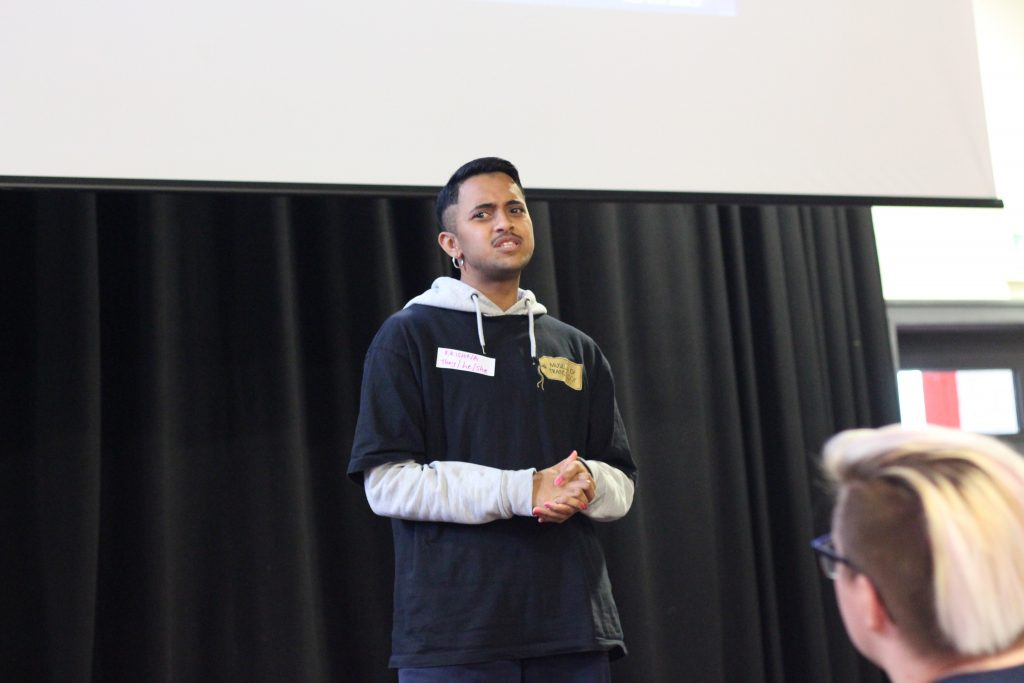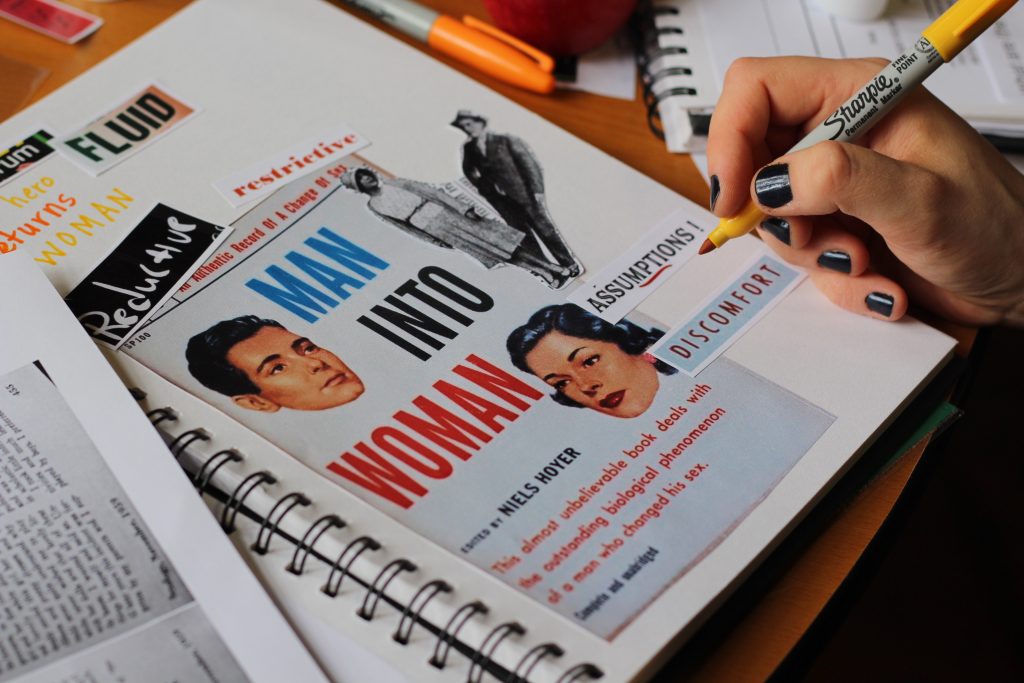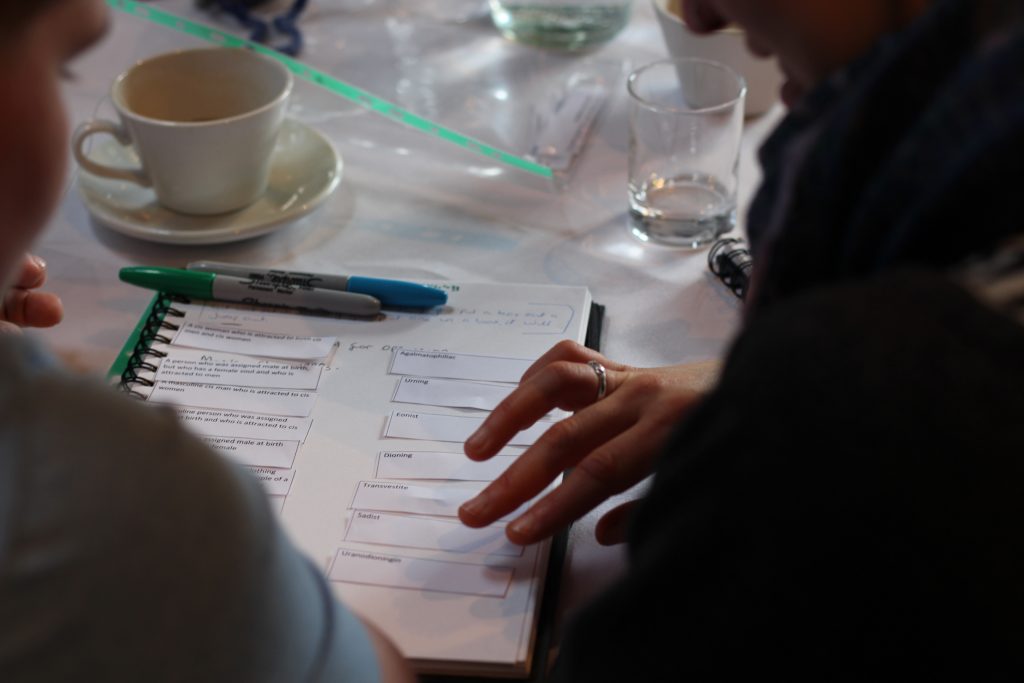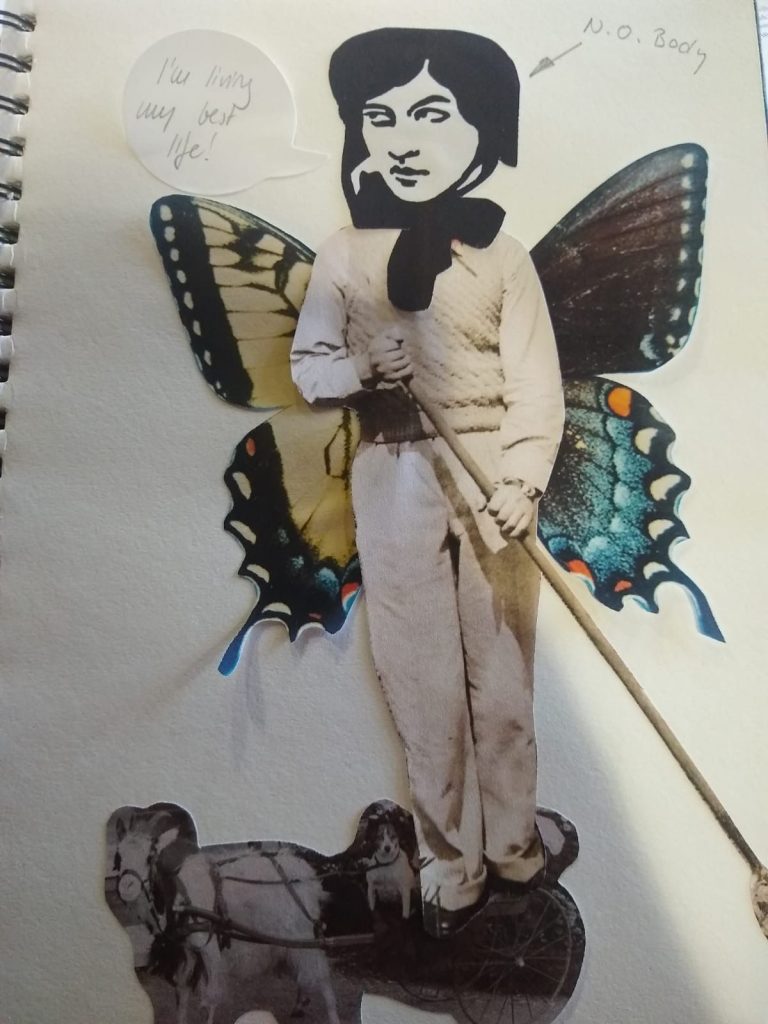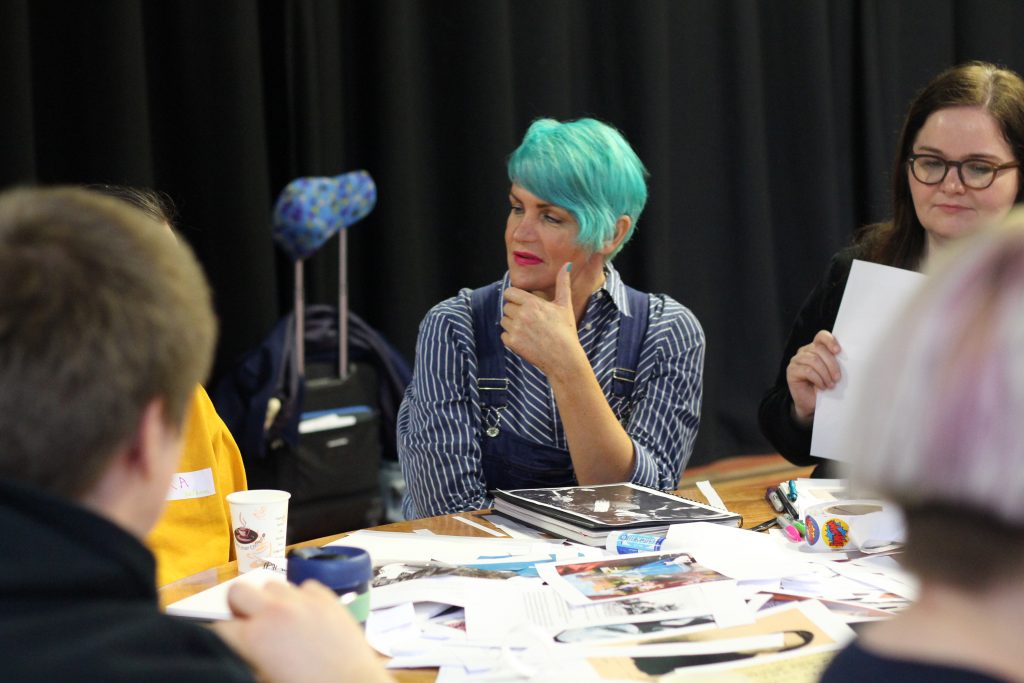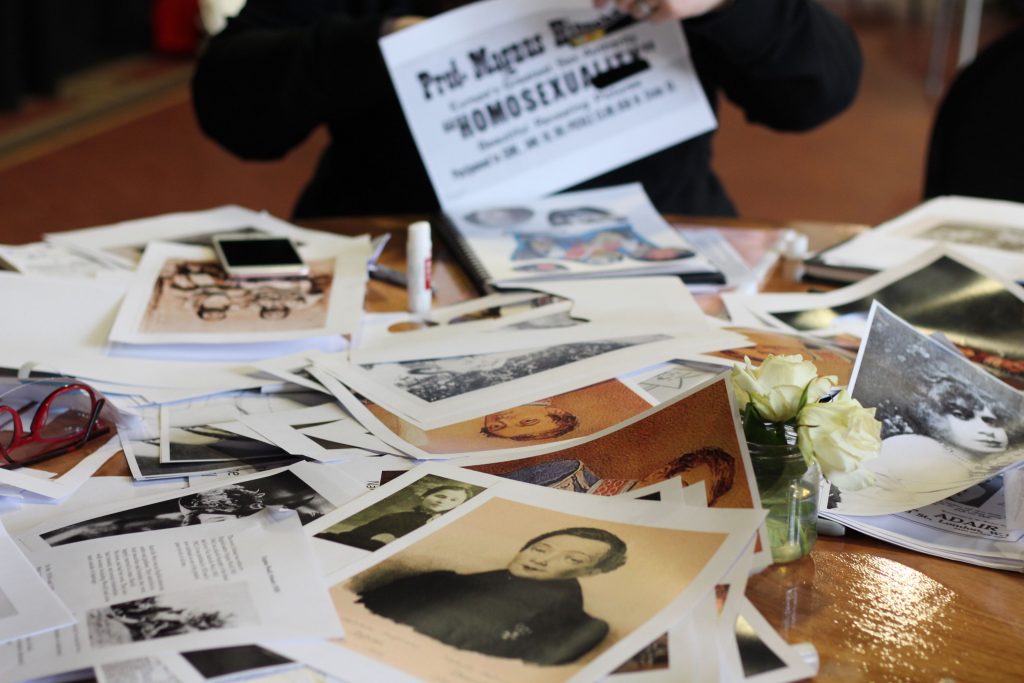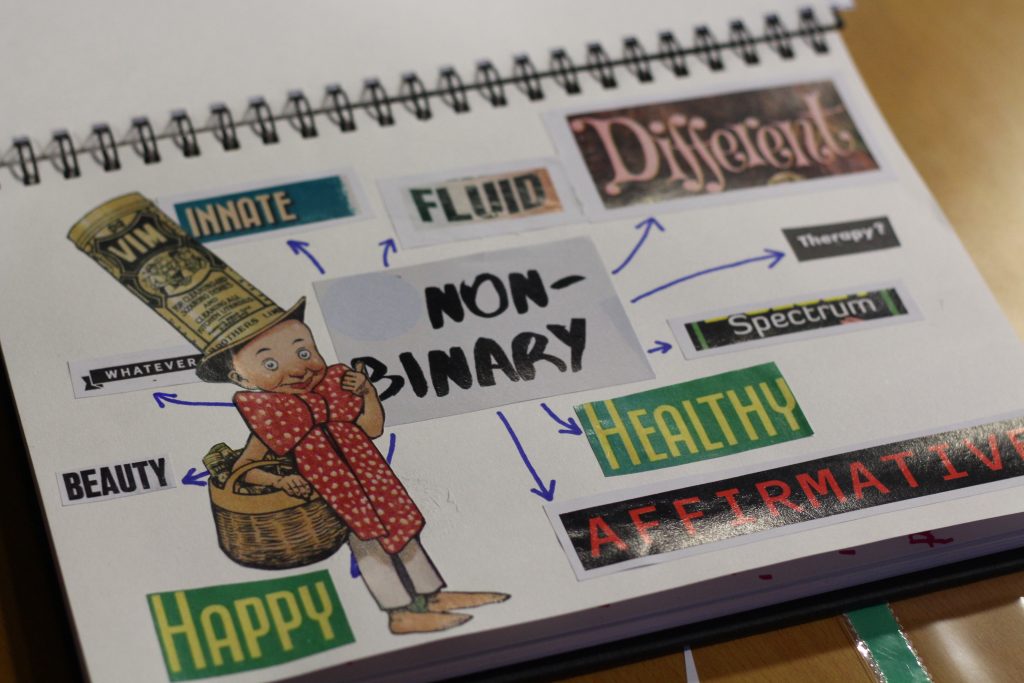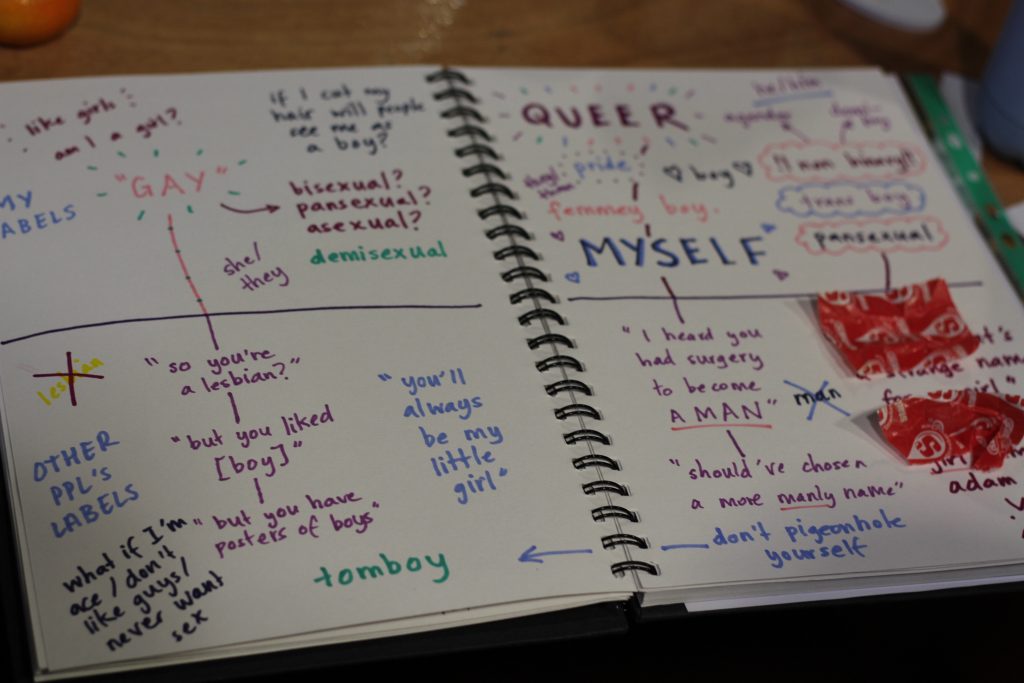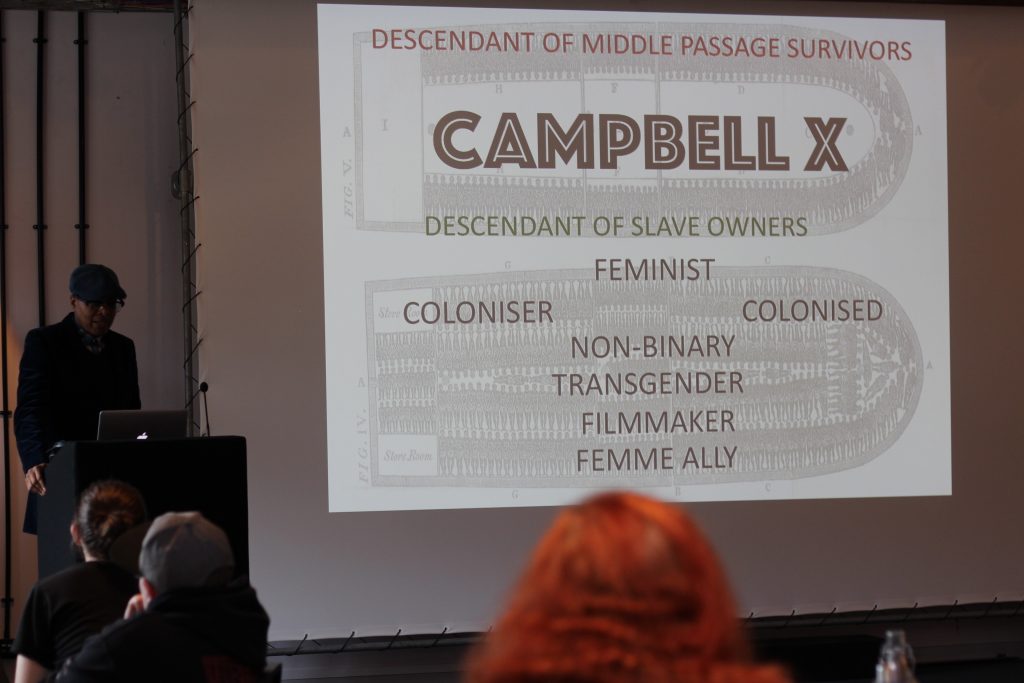ABOUT THE PROJECT
“There’s a direct line through time connecting the ideas formulated by the sexologists to the way trans people seeking medical interventions are treated today. So, say you were going through a Gender Identity Clinic in 2020, you are part of a system of medicalisation and diagnosis with its origins in the late 19th century. And here’s the thing, I wonder..if you understand why the system works in the way it does, where the thinking came from, then maybe you can critique it.”
-suitcase
In March 2019, we held a series of workshops in Bristol for young trans and non-binary people, exploring the ideas of the sexologists working in Europe and North America in the late 19th– and early 20th-century. We also looked at other materials to discover different facets of trans history. That summer, some of the young people also recorded oral histories with older trans people. We could see connections, how ideas formulated a hundred years ago still affect the way trans people are treated by the medical system today.
A group of young trans and non-binary people then worked with Jason Barker to develop a script for a stage show based on some of the stories that they had encountered. We had to change our plans with the pandemic, and the stage show became a drama podcast, directed by Krishna Istha and featuring a cast of trans and non-binary performers, musicians and sound designers. We also worked with They Them Studio to create this website and asked trans and gender-diverse artists and writers to contribute their creative responses.
Funded by The Wellcome Trust, this project is a collaboration between Jason Barker, the charity Gendered Intelligence, the Rethinking Sexology and Transformations Team at the University of Exeter and the University of Portsmouth.
Researchers involved in this project include: Professor Kate Fisher, Professor Jana Funke, Dr Jen Grove, Dr Sarah Jones, Professor Rebecca Langlands, Dr Ina Linge, Dr Catherine McNamara, and Kazuki Yamada.

